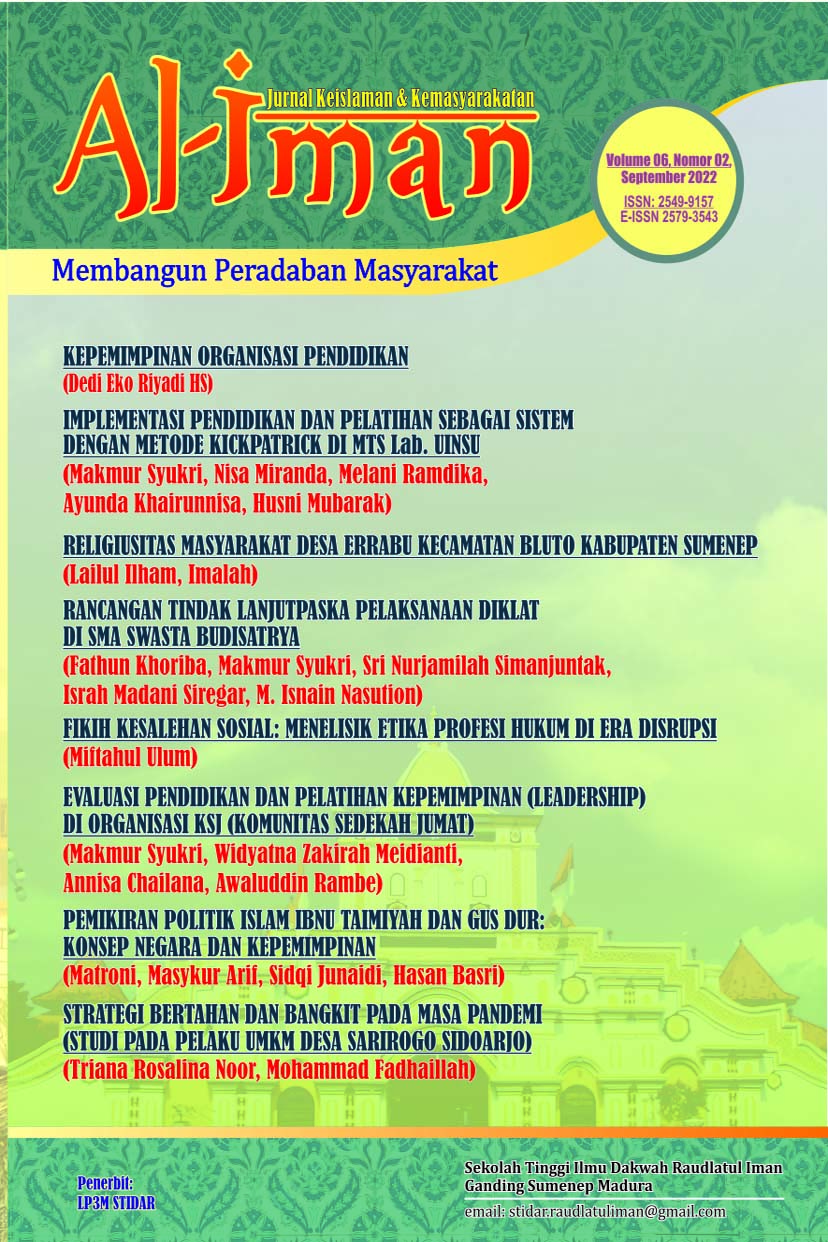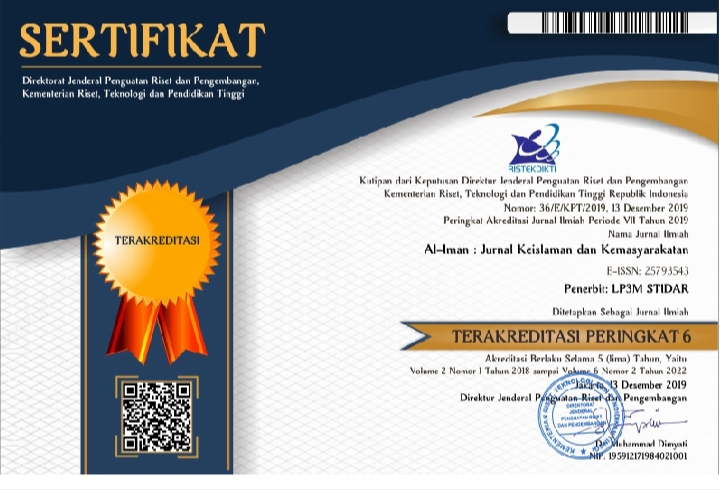Pemikiran Politik Islam Ibnu Taimiyah dan Gus Dur: Konsep Negara dan Kepemimpinan
Keywords:
Ibnu Taimiyah, Politik, KepemimpinanAbstract
The Khilafah theory is no longer able to fulfill the goals of government in Islam. Ibn Taimiyah finally promised an Islamic political theory which was expected to be able to cover the shortcomings and limitations of the Khilafah theory by referring to the classical Caliphate theory. Ibn Taimiyah's political theory is contained in one of his works entitled al-Siyasah al-Syar'iyah fi islah al-Ra'i wa al-Ra'iah (Shari'ah-based Politics for the Improvement of Returners and Shepherds). Departing from the classical basis of the theory of caliphate, he not only criticized the theory of caliphate, but at the same time saw that there was no need for a caliphate. Even Ibn Taimiyah argues that in the Qur'an and as-Sunnah do not formulate a caliphate. The existence of the historical background of the Khilafah Khilafah al-Rasyidin is nothing more than an accident, not an example of political life. Even the life of the Prophet is not seen as the basis of government that needs to be adopted in a particular political system of government, he is nothing but a sui generis institution, not the basis of Islamic politics. Ibn Taimiyah's rejection of the practice of history as the basis of political philosophy, then Ibn Taimiyah avoided the error of assessing the existing political power as power legalized by the shadow of the caliph, as contained in the characteristics of the political theory of previous thought. Teori khilafah sudah tidak mampu memenuhi tujuan pemerintahan dalam Islam. Ibn Taimiyah akhirnya menjanjikan teori politik Islam yang diharapkan mampu menutup kekurangan dan keterbatasan pada teori khilafah dengan merujuk pada teori kekhalifahan klasik. Teori politik Ibnu Taimiyah tertuang dalam salah satu karyanya yang berjudul al-Siyasah al-Syar’iyah fi islah al-Ra’i wa al-Ra’iah (Politik yang Berdasarkan Syari’ah bagi Perbaikan Pengembali dan Gembala). Berangkat dari dasar teori kekhalifahan klasik, ia tidak saja mengkritisi teori kekhalifahan, namun dalam waktu yang sama memandang bahwa kekhalifahan tidak perlu ada. Bahkan Ibn Taimiyah berpendapat bahwa dalam al-Quran dan as-Sunnah tidak merumuskan kekhalifahan. Adanya latar belakang sejarah khilafah khulafa al-Rasyidin tidak lebih dari sekedar aksiden, bukan merupakan contoh kehidupan politik. Bahkan kehidupan Nabi sekalipun tidak dipandang sebagai dasar pemerintahan yang perlu diadopsi dalam sistem politik pemerintahan tertentu, ia tidak lain hanyalah sebagai sebuah lembaga sui generis, bukan sebagai dasar politik Islam. penolakan Ibn Taimiyah terhadap praktek sejarah sebagai dasar filsafat politik, maka Ibn Taimiyah terhindar dari kesalahan menilai kekuatan politik yang ada sebagai kekuasaan yang dilegalisasikan oleh bayangan khalifah, sebagaimana terdapat pada ciri-ciri teori politik pemikiran sebelumnya.Downloads
Published
Issue
Section
License
Al-Iman: Jurnal Keislaman dan Kemasyarakatan (ISSN : 2549-9157xx) dan (EISSN: 2579-3543xx) diterbitkan oleh Lembaga Pusat Penelitian dan Pengabdian Masyarakat (LP3M) STID Raudlatul Iman (STIDAR) Sekolah Tinggi Ilmu Dakwah Raudlatul Iman Sumenep Madura. Jurnal ini memuat kajian-kajian keislaman yang meliputi Kajian Dakwah, Interaksi sosial. Terbit dua kali setahun, yaitu bulan Maret dan september









